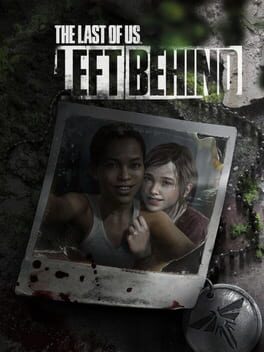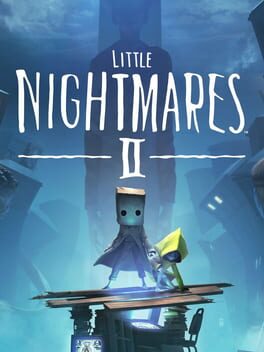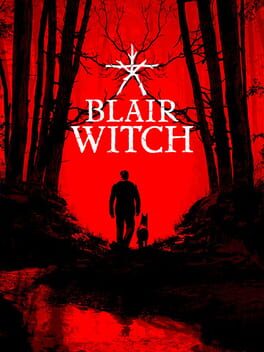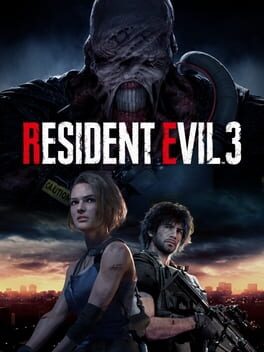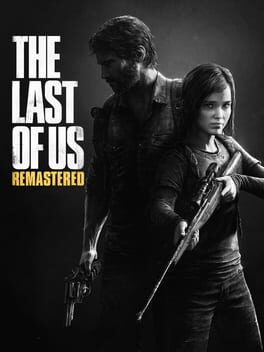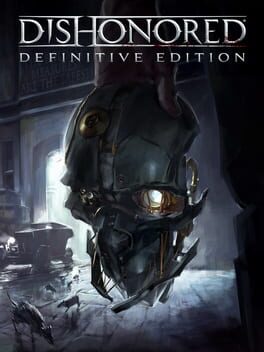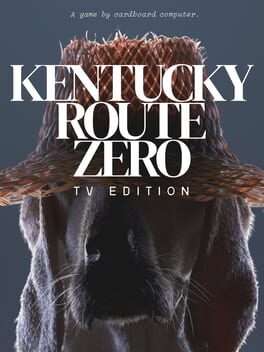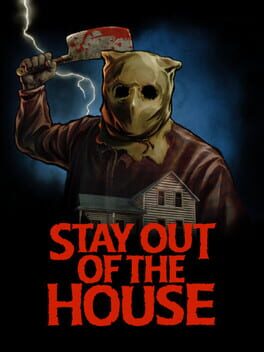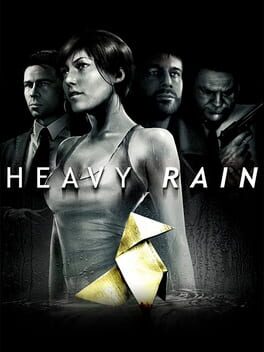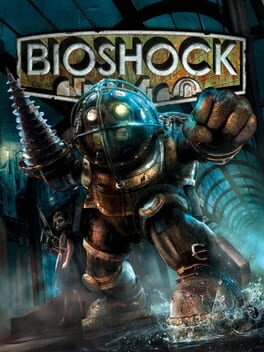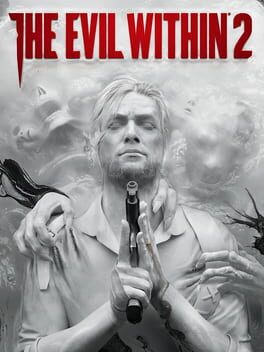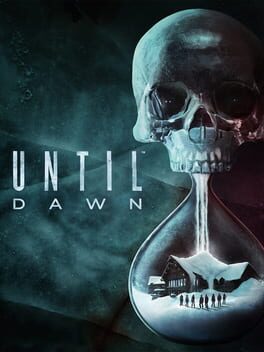pulpfuertes
Lingers. Could have gone for another hour or two without a hiccup but the beauty of something like this is that it ends without any concrete answers to the established character/narrative arcs. Such are waning memories. Only the moments of implied catharsis shine brightest. The smaller, possibly even more meaningful gestures, fade away with the mist of moonlit waves. Before you know it the vacation ends, the recollection simply that. A pocket in time that existed for a short while. There are no stakes but to simply observe playful interactions coated with minimalist nature designs. It's simple and cute and occasionally touching, and that's all it needed to be.
Interested in what Naughty Dog could accomplish with better structured and more nuanced shorter works that take on this sort of efficiency. Three hour experiences that function not dissimilar to films or miniseries. With Left Behind the larger ideas of the base game are truncated and served in bite sized chunks, which punctuates the emotional brevity but also removes a sense of tension and buildup, making it all feel sort of serial, not unlike a television drama. There is a charm to that but it also makes it quite forgettable at the end of the day. I kinda just wish there were no enemies to fight; only these fleeting memories of interacting with the person Ellie once loved through button prompts and trivial "combat" sections.
2021
Tarsier Studios continues to showcase a truly captivating talent in environmental and enemy design here and how that feeds into a consuming aesthetic but flounder in their multiple attempts to diversify the gameplay from its predecessor from the shoddy combat mechanics to the continued imprecise platforming and at times even detrimental bugs that hinder progress. These are issues the last one had but it seems to effect this one ten fold considering its loftier ambitions. This plays more like the rough DLCs of the first which also expanded on the simplistic gameplay albeit in bite sized hour long chunks on top of the base two hour game. Little Nightmares II takes about six hours to complete on its own and with each passing section that length is felt. The school and hospital chapters, while conceptually fascinating, are bloated and don't entirely serve the narrative outside of being thin Youtube React fodder. The "trial and error" structure is less so about learning what you are doing wrong than it is just following a needlessly stern script forced upon the player to deliver empty cinematic thrills. That coupled with the constant restarts due to elements inserted for shock value unbeknownst to the player makes for an irritating experience all in all. Little Nightmares II is just empty art despite its three dimensional areas and overtly symbolic characters giving the impression of depth. A lot of shallow window dressing for what? Unfortunately the "trial and error" design philosophy as it is executed here lends itself to a lot of pointless deaths and exceedingly frustrating portions and ultimately loses the intended impact. It is very much more of the same but just more of it and while I support the grotesque vision that this studio offers, its warped twisting of authority figures being as effectively creepy as ever, the overall product just feels cynical and even dated.
2019
While it may not be saying much from what I've played, this is Bloober Team's most accomplished work yet. Still need to play The Medium and Observer but here we see their minor (but nonetheless valid) talent for crafting ravishing and atmospheric environments utilized to maximum effect thanks to their dedication in making the player truly feel lost within this cursed forest. There are moments that unlike anything in both Layers of Fear titles where I felt mildly unsettled, which I'll take at this point. While it builds off of an established IP (the Blair Witch mythology demands to be further explicated apparently), they interestingly explore how the titular witch's influence enables inherent traumas and makes one act on their most morbid impulses. The game feels more Book of Shadows in that way than it does the original classic. It's messy storytelling overall because of Bloober Team's insistent lack of nuance and bludgeoning of capital T themes and in the end doesn't quite stick the punch line to these ideas but at least it has a basic minimal understanding of what constitutes as "psychological horror". Bloober Team is giving me tasty scraps and I guess I ate (mostly in part to the dog tbh), but I feel once they get over their obsession with PT they can deliver something truly idiosyncratic to the horror medium. There are traces of it here beyond the terrible enemy encounters and shoddy dog AI because otherwise, I had fun.
2020
Pure, explosive Cameron-esque bombast and I adored so much of it. An absolute shockwave of zombie spectacle and pulpy bad-assery. Wish some parts were better fleshed out (such as Carlos) and that certain gameplay elements werent recycled (innovation is certainly lacking here which feels out of character for the franchise) but for something that comes together this effectively and maintains a level stability for its entire duration I can't complain too much.
2014
Coming off how well Amnesia: A Machine for Pigs nailed its atmosphere (despite pretty much everything else), I was pleasantly surprised with how densely thoughtful and visually immersive the gloomy Victorian steampunk vibes were handled here. The rare game that gets better and more exciting the longer you play it; and I’m sure that in retrospect I’ll find more value in how it marries its twisting, interweaving level design with the wacky cartoonish moral handwringing. For what essentially amounts to Bioshock as imagined by Grimshaw, there’s a distinct quality with how the player’s engagement with the world building explicitly informs the gradually unfolding narrative that I found inspired. The measure of a man’s worth being determined on his (justifiably enraged) penchant for chaos is all quite simplistic at the end of the day but the game’s active effort to be at least be cognizant of the player’s violent acts are heard and acknowledged.
A hard game to describe and an even more difficult one to quantify. What started as something I deeply admired as a murky, occasionally moving exploration of capitalism’s inherent stranglehold on middle to lower class Americans slowly transformed into one of the most consuming and gorgeous works of art I’ve experienced in any medium. With each act, the ensemble growing in number and the mystery increasingly folding in on itself through magical surrealist imagery and an ambient rural atmosphere, I found myself less so questioning the meaning of the thematic poignancy behind these elements and just succumbed to the emotional prowess and tenderness on display. Albeit refreshingly nuanced in these expressions of grief, longing, regret, and so on it’s in the game’s pronounced moments where it shines the most and gives levity to the entirety of the narrative. “Too Late to Love You” may be the iconic standout but playing Xanadu, deconstructing the play in “The Entertainment”, discovering the haunted distillery, and listening to voicemail messages on a barge proved just as profound amongst a dozen or so other cherished sequences.
I’m all the more happy I ended up settling in for what would prove to be an overwhelmingly dense masterwork in storytelling and atmosphere because there were times when the straying gameplay tested my attention span with its meandering conversations and cumbersome movements. Even as I write this review my mind spins with the dizzying tangents this game takes the player on; components unique to this medium solely because of its interactivity. It just can’t be done on film or prose alone. The stunning visual compositions and lush soundtrack are only gravy to what Cardboard Computer accomplishes with their rich screenplay and cleverly nuanced direction. It’s all meant to serve a greater purpose that transcends being a “novel” or a “film” or a “play”, let alone a video game. Its potent fluidity between all of them is what makes it the powerful experience that it is and yet it ultimately pitches its tent as a game.
While it spends its first two acts building up a proper narrative and giving the player a decent amount of lore and character backstory to chew on to push them through, after that brief initiation the game becomes an odyssey-like trek into the waking unknown, culminating in what can only be described as Heart of Darkness but make it tranquil space country vibes (with a dash of unease). A purgatorial journey on the Echo River where the mundane stops along the way unknowingly determine the fate of society as these characters know it, leading to an ethereal apocalyptic landscape where God is an overseeing cat and the player a director to this sweeping game of life. Our choices, neither right or wrong, are about providing context to the jinxed voids presented before us. They have their lives and have made their decisions, however exist to be defined by the player. Maybe those words are nonsense to the uninitiated who haven’t played this or maybe I missed the point but it’s how it made me feel right now.
This is a game that demands patience and rewards those willing to take their time with it. It wants to be felt in a spiritual sense rather than intently understood through an intellectual lens and even then to dissect the game’s many literary, cinematic, theatrical, religious, etc influences and references would probably prove just as fulfilling. This is as much a video game about creating and commodifying art and the futile process behind it all as it is one about studying and making sense of it. Some call it Lynchian in that respect but I’m as much inclined to compare it to the films of Terrence Malick; wandering souls attempting to reason with the reality of death and the emotional toll it takes to wrestle with mortality. It’s amazing how despite containing obvious homage to the original Twin Peaks, Kentucky Route Zero is as much a spiritual precursor to what Lynch would do with The Return. So much of what those 18 hours achieves can be found in here in more ways than one. There’s no future conversation about this medium as an artistic form without these five acts and five interludes somewhere within it. I feel as though a decade or two from now we'll still be trying to catch up.
I’m all the more happy I ended up settling in for what would prove to be an overwhelmingly dense masterwork in storytelling and atmosphere because there were times when the straying gameplay tested my attention span with its meandering conversations and cumbersome movements. Even as I write this review my mind spins with the dizzying tangents this game takes the player on; components unique to this medium solely because of its interactivity. It just can’t be done on film or prose alone. The stunning visual compositions and lush soundtrack are only gravy to what Cardboard Computer accomplishes with their rich screenplay and cleverly nuanced direction. It’s all meant to serve a greater purpose that transcends being a “novel” or a “film” or a “play”, let alone a video game. Its potent fluidity between all of them is what makes it the powerful experience that it is and yet it ultimately pitches its tent as a game.
While it spends its first two acts building up a proper narrative and giving the player a decent amount of lore and character backstory to chew on to push them through, after that brief initiation the game becomes an odyssey-like trek into the waking unknown, culminating in what can only be described as Heart of Darkness but make it tranquil space country vibes (with a dash of unease). A purgatorial journey on the Echo River where the mundane stops along the way unknowingly determine the fate of society as these characters know it, leading to an ethereal apocalyptic landscape where God is an overseeing cat and the player a director to this sweeping game of life. Our choices, neither right or wrong, are about providing context to the jinxed voids presented before us. They have their lives and have made their decisions, however exist to be defined by the player. Maybe those words are nonsense to the uninitiated who haven’t played this or maybe I missed the point but it’s how it made me feel right now.
This is a game that demands patience and rewards those willing to take their time with it. It wants to be felt in a spiritual sense rather than intently understood through an intellectual lens and even then to dissect the game’s many literary, cinematic, theatrical, religious, etc influences and references would probably prove just as fulfilling. This is as much a video game about creating and commodifying art and the futile process behind it all as it is one about studying and making sense of it. Some call it Lynchian in that respect but I’m as much inclined to compare it to the films of Terrence Malick; wandering souls attempting to reason with the reality of death and the emotional toll it takes to wrestle with mortality. It’s amazing how despite containing obvious homage to the original Twin Peaks, Kentucky Route Zero is as much a spiritual precursor to what Lynch would do with The Return. So much of what those 18 hours achieves can be found in here in more ways than one. There’s no future conversation about this medium as an artistic form without these five acts and five interludes somewhere within it. I feel as though a decade or two from now we'll still be trying to catch up.
This one’s a doozy. Brutally oppressive in atmosphere, with a dizzyingly labyrinthine map design and truly grotesque sound work. The way that Puppet Combo combines all these harsh elements together makes for a near-excellent title but its ultimately held back by a needlessly obfuscated gameplay loop- a survival simulator that lays out a variety of tools to utilize in an impossibly constructed field. It can at times feel defeating with how janky it is to maneuver these hallways as you run from the killer (and upon recapturing losing everything you’ve found) but by the end I was mostly won over by the inherent imperfections of the game’s design as well its patient structuring- the main objective not making itself apparent until well over a 1/3 into the story. I won’t lie when I say I had to follow a guide for much of this and despite that this remained a crushing, nerve-wracking experience to navigate as I collected supplies and crouched my way through tight vents, German expressionist rooms, and blood tinged exteriors (subliminal jump scares included!). The increasingly surreal and nightmarish aesthetic, already beaten and degraded because of its “VHS formatting” and clearly influenced by the work of Tobe Hooper, does wonders in instilling genuine dread and hopelessness in the player. I walk away with that and think back to my playthrough with fondness. Just never want to hear that animalistic screech ever again lol
2010
A glorious and genuine example of video game camp. So earnestly proud of its narrative self-seriousness, technical innovation, and dedication to a grim atmosphere that it balloons into parody. It couldn't have gone any other way with how the medium was at the time and in ways its cult status is entirely attributed to its dated ridiculousness. Always captivating even if the Norman Jayden chapters grind the pacing to a screeching halt almost every goddamn time. Shame about how the majority of the game plays out because for the first two or so hours there is a touching dynamic between Shaun and Ethan that I found palpable and frankly real. There's a mundanity to how Cage expresses the grief here that moved me. All the button prompts to drink orange juice and prepare weirdly animated pizza dinner for your son felt properly laborious in these sections and accentuated the deep sadness that underscores the game's tone (also in part due to the gorgeously varied score). And then the rest of the game happens and the entire thing devolves into trashy B-movie pulp territory. I like it that way though! There's not many other neo-noir games out there with such passion to be this wholly unbalanced and narratively ill-fated with a straight face.
2007
Really wish the majority of the third act didn't exist. Doesn't quite diminish the sheer intensity and beauty of the world building and the atmosphere it evokes but the overall experience certainly deflates with its blandly visualized final areas (especially following the dynamism of Arcadia, Fort Frolic, and Hephaestus), constant enemy spawns and security bots/turrets and a lack of ammo/health to compensate for the surge in difficulty. One can tell the developers lost a bit of imagination following the iconic twist and it's a shame because this is an otherwise vividly absorbing and horrifying game thanks to the immaculate sound work and environmental design. Awkward combat encounters and bloated third act aside, this is a near masterwork. A game that struggles to find the balance between pleasing FPS fans and those who look for substance but nonetheless a watershed moment for the medium.
2014
An apex action spectacle. Misses out on the arduous challenge and provocative dynamism of the previous installment which made for an invigorating gaming experience but this makes up for it with how seamless the pacing and combat feels here. It's more superficially cinematic in every way from its sweeping soundtrack to how the grandiose bosses and level design are easier to grasp while remaining consistently bombastic and exciting to play. It definitely feels like a clean-cut blockbuster which takes away from the earnest scrappiness of the first however it hones in so well on the strengths of its predecessor that it doesn't make a difference. It's just as funny and transgressive if in different ways. Nothing feels shortchanged for those just looking for an electrifying dance between heaven, hell, and the broken sense of duality they share. The first was a bold exploration of this mythology and world but here it is a wide embrace of the chaos that encompasses it. To the uninitiated, it can be head spinning. For the rest of us, it's undeniably bliss.
2017
A lot of dumb zombie bullshit for what amounts to the custody battle for the ages! Anyways, so much of this contains strong, superficially creative threads but overall lacks the off-kilter direction and wonky tone that defined the unforgettable unpredictability of the previous entry; despite its detrimental flaws that is. However this sequel definitely feels like an attempt to gradually parse out the downright inscrutability of the first while remaining accessible enough for the masses. It is actually quite successful at that for the most part as it adopts a uniquely open world survival horror mold. It is unfortunate that much of the material that fills this mold is more of the same shit you see in most other AAA titles, but that this tries something bold from the get is interesting. Its linear portions are propulsive and slowly progressing through the open areas had its rewards. Its a shame that this gameplay loop runs its course by the midway point (you'll know exactly when lol) and by then you still have at least another eight hours of story to trudge through. This beast is just entirely too long. All in all though it remains a AAA horror blockbuster devoted to actual ideas and character development and world building so for me, that is enough to warrant a single playthrough even if it relies too much on this bland functionality over the radical artistry of the first. I doubt I'll ponder on it much after a few days but I'd recommend it to those that need something competently creepy and gratifying but unlike its predecessor, not completely oppressive and unapproachable. It's a fun time waster.
2015
Aggressively 2015 if that makes any sense. There's few sequences in modern horror more iconic than witnessing Hayden Panettiere, bearing only a towel and a dash of courage, fight off a masked clown lunatic in a labyrinth-esque lodge, consistently escaping his clutches by a hair only to face yet another obstacle in the way. The choice-based gimmick lends itself to fascinating philosophical readings but what interests me the most is how the game's overall framework of being a playable slasher/creature feature deconstructs cinematic language and reworks it to fit with how a player's logistical instincts interprets environmental clues and moments of empathy allowing for complete interactivity and engagement with their choices. There are parts of this that are absolutely excellent even if its first half struggles to maintain footing. Its stark winter aesthetic and clever use of fixed angles traps the player (and the characters they play) in an almost oppressive box of looming mortality. The developers execute this with intensely calculated and visceral visual control, cleverly stacking jump scares, eerily washed out lighting, and tonal shifts with ease. The second half didn't come to be as jarring as before because of how seamless the character progression was and how fluidly everything moves along. When this ensemble transformed from being insufferable and needlessly cruel to being some of the most strong willed protagonists I've ever seen in the genre, it feels like a miracle at work. Some of the stuff here remains as effective as I remember although performance issues such as awkward character model gestures and janky frame rate did hamper the immersion. I'm also not much of a fan of the recaps between episodes but there's a special charm to this game's dated nature. iI's something I'll probably end up returning to again and again in the future until something dethrones it as the prime choice-based horror adventure.

